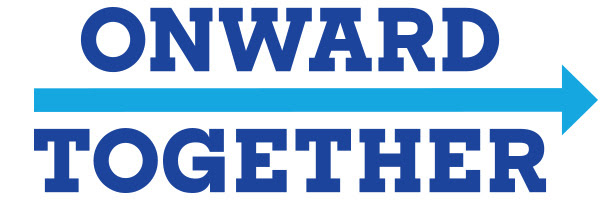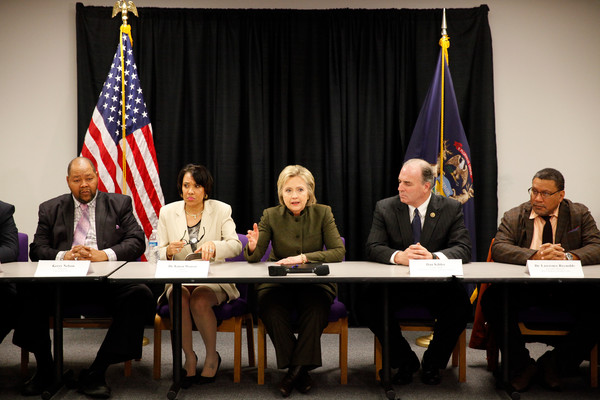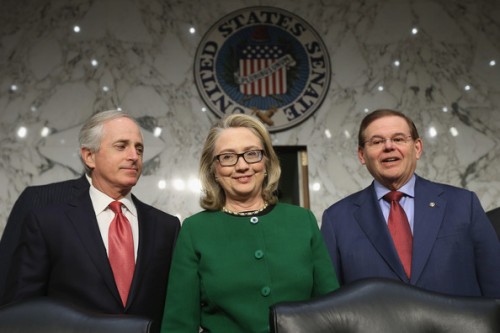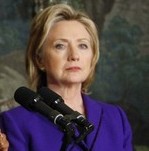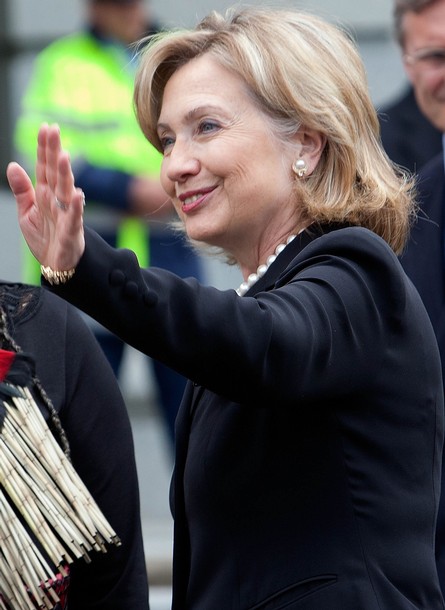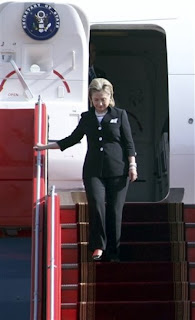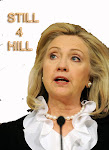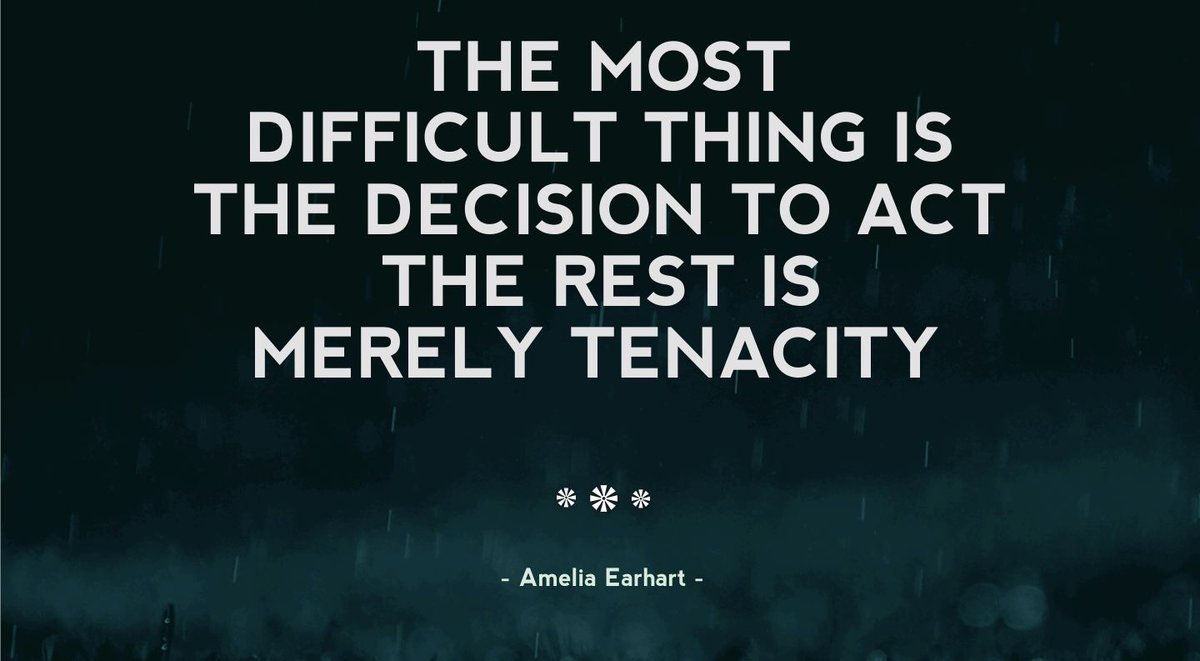SECRETARY CLINTON: It’s a great pleasure for me to welcome Minister Moreno here. We met a year ago, almost to the day, when I came to Chile to extend sympathy, solidarity, and support of the American people with Chileans in the wake of a devastating earthquake that took more than 500 lives and affected more than two million people and caused such extraordinary damage.
And from that time to today, it’s been an amazing year for Chile. The resilience and the dynamism of the people has been seen time and time again. We were among the over one billion people who watched the rescue of the miners and look forward to having an exhibition at the Smithsonian of that remarkable feat in August.
It is no coincidence that President Obama will be going to Chile and delivering a major policy address in Santiago articulating the importance of Latin America to the United States. It will be approximately, if not exactly, 50 years to the week after President Kennedy articulated the Alliance for Progress.
And we have so much that we’re working on together. Our bilateral relationship is open and growing. The United States is Chile’s second largest trading partner. We’re the largest foreign investor. And we know that prosperity depends on security, and I thanked the minister for Chile’s great work in Haiti and what they are doing throughout the region to assist law enforcement, police training, and so much else. We are very much heartened by the Chilean congress passing this week a law that significantly strengthens Chile’s legal code in combating the trafficking in persons.
So, Minister, there’s a lot we talked about – about Chile and the United States, about South America, about the Western Hemisphere, and indeed, the world. (Laughter.) So thank you so much for being here.
FOREIGN MINISTER MORENO: Well, thank you very much, Ms. Secretary. As you know and as I told you at the meeting, we are delighted with the visit President Obama will do on March 21st to Chile. We feel that this is a significant signal to Chile and to the whole region. I am sure that within that visit and with all of our teams, we will work together identifying opportunities for the Americas.
I also, as you already said, I want to express our appreciation for the U.S. support not only of the earthquake but also on the miners’ rescue. We feel that this was an example of finding new solutions, creative solutions, for problems that we were not used to have. This was something that never happened before – people that were trapped under 700 meters below earth. So – and together with the U.S., with many people, very good ideas, and our own teams, we were able to rescue all of them alive. We feel that this is an example of the type of partnership that we can have between the U.S. and Chile.
Of course, we have issues of common interest which are education, energy, technology, and many more. We hope to strengthen this partnership between Chile and the U.S. and we are really forward-looking, taking into account the new realities that we have in our region. Chile and the United States share a common agenda in human rights, on democracy, on economic development, on social inclusion, in the fight to international crime, on the care about the environment, and many other issues. And we have to work together.
One of those issues is Haiti. And as we talked, we knew to devise ways of how we can be effective in taking Haiti to a new startup, a new development, and to take all that country from where it is to a new complete reality. And also, we had the opportunity to talk about our trip with President Pinera to the Middle East and to the south of Europe. Those are issues that are important not only to the U.S., not only to the people that are in those countries. These are issues that are important for the whole world.
So thank you very much. We will be waiting for President Obama down there. And as I told you at the start, this is a magnificent opportunity for both countries to strengthen our relations. Thank you very much.
SECRETARY CLINTON: Thank you, Minister.
MR. TONER: The first question, Jill Dougherty at CNN.
QUESTION: Secretary Clinton, thank you. Mr. – Colonel Qadhafi is hitting back very strongly at the rebels. He’s doing a lot of damage. CNN’s Arwa Damon, who is in the region, had an interview with the head of the interim government in eastern Libya, Mr. Jalil. And he said there has to be immediate action; the longer the situation carries on, the more blood is shed.
You also had Mr. Clapper today saying that if this goes on, the regime will prevail. How long can the United States and the world community stand on the sidelines without taking military action?
And also you had the ambassador – I guess the former ambassador for Libya here today. What did you tell him?
And then just one very quick one that came up. Saudi Arabia – there are reports that the police have been firing on protestors in Saudi Arabia. How do you assess the stability of Saudi Arabia right now?
SECRETARY CLINTON: Well, I don’t know anything about this final point, Jill. But on the first two questions concerning Libya, I think the international community is well aware of the situation and has moved quite quickly and forcefully. First, we imposed strong sanctions. Just in the United States we’ve already frozen over $32 billion of the Qadhafi regime’s assets. We have coordinated additional sanctions with our European and other partners and also through the United Nations. We’re expanding our sanctions to even more people within the Qadhafi regime.
Second, we have taken steps to put in motion actions that will hold members of the Qadhafi regime accountable through the United Nations Security Council resolution. We have referred the regime to the International Criminal Court. We have intelligence capabilities that are monitoring Libyan activities in order to establish the base for accountability.
Third, we are in direct contact with members of the opposition here in the United States, in Libya, in other countries. And we are working with them to determine what assistance they actually are able to use and asking for so that we can figure out how best to support their aspirations.
We are also, as I announced today, suspending the Libyan embassy in the United States. We will not accept representatives from the Qadhafi regime representing them in Washington. And we think all of this is adding up to significant pressure.
Fourth, we’re providing a lot of assistance to support the humanitarian needs. We have helped to repatriate people who have fled from Libya. We’re getting resources in in cooperation with a lot of other partners to provide support for the Libyans who are waging this very difficult struggle. And we are positioning our own people on the borders to figure out how much more we can do, and we are pursuing a range of military options.
But I think it’s important to underscore this takes time to prepare and plan. We – we’re very supportive of this week’s meetings in NATO. We’re pursuing 24/7 surveillance, and we are taking steps to enforce the arms embargo.
So today at NATO, the alliance agreed, number one, to increase maritime assets in the central Mediterranean. We agreed to move ahead with detailed operational planning for humanitarian relief and for even more active enforcement of the embargo. And we are continuing to plan for the full range of possible options, including a no-fly zone. And these plans will be presented to NATO on March 15th.
I know how concerned people are. I share that concern. But we have a lot of experience in this kind of circumstance, from Iraq, from the Balkans, and elsewhere. And we know how challenging it is to do any of the things that a lot of people are calling for. But I think the steps we have taken add up to a great deal of quick reaction to what we see happening.
QUESTION: Is there an actual trigger for military action?
SECRETARY CLINTON: Well, Jill, I’m not going to respond to that, because trying to plan is the first and most important undertaking, and there is an enormous amount of planning going on. But it’s very challenging, and I think we ought to be – have our eyes open as we look at what is being bandied about and what is possible in order to make good decisions. And that’s what the President has asked us to do.
MR. TONER: Next question to (inaudible).
QUESTION: Thank you. Mrs. Secretary, we would like to know why Chile is so important for Latin America. Do you think or do you see Chile as a counterweight of other governments of the region like Venezuela, for example? And in that case, what do you expect of the Chile Government? Thank you.
SECRETARY CLINTON: Well, first, we admire Chile. We admire the extraordinary progress that Chile has made over the last years. Its recent history of transitioning to a full democracy is extremely important in today’s world, and we talk about that and point people to it. In fact, in my conversations with Egyptian officials, Chile is mentioned without any prompting from me but from Egyptians saying they want to know more about what Chile has done. Because Chile is not only a democratic success, it is an economic success and it has delivered results for the Chilean people because of the strong commitment to democracy.
So, as the President is clearly demonstrating, we are very proud of our strong bilateral relationship, but we also see the opportunity for Chile to play a role regionally in helping neighbors to understand what it takes to have the kind of positive story that Chile now represents. So perhaps the minister would want to add to that.
FOREIGN MINISTER MORENO: Well, I only want to add that in Latin America we have countries that are pursuing two different kinds of models. But any country can choose what they want to do. What we do in Chile has been successful for us. Some other countries are getting through the same road and they are being successful too. And we feel that that’s the way – how we can be maybe the first developed country in Latin America within this decade, that we can fight against poverty. At least until today, results have been good. Results have been good also for Colombia, for Peru, for many other countries that are going through the same path. And people have to choose what is the best way of doing things in their own country.
SECRETARY CLINTON: Thank you all very much.
FOREIGN MINISTER MORENO: Thank you.




























